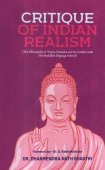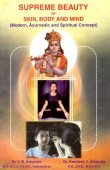Intellect: 2 definitions
Introduction:
Intellect means something in Hinduism, Sanskrit. If you want to know the exact meaning, history, etymology or English translation of this term then check out the descriptions on this page. Add your comment or reference to a book if you want to contribute to this summary article.
Images (photo gallery)
In Hinduism
Natyashastra (theatrics and dramaturgy)
Source: Shodhganga: Elements of Art and Architecture in the Trtiyakhanda of the Visnudharmottarapurana (natya)Intellect (as a quality) in Indian dramas, is denoted by the Sanskrit term Mati and is classified as one of the various “transitory feelings of mind” (sañcāribhāva) in Indian Dramas, according to the Sāhityadarpaṇa.—The state of utsāha is the sthāyībhāva of vīrarasa. It increases energy and excitement to mind and projects the heroic sentiment through the sañcāribhāvas i.e., transitory feelings of mind like, e.g., mati (intellect).

Natyashastra (नाट्यशास्त्र, nāṭyaśāstra) refers to both the ancient Indian tradition (shastra) of performing arts, (natya—theatrics, drama, dance, music), as well as the name of a Sanskrit work dealing with these subjects. It also teaches the rules for composing Dramatic plays (nataka), construction and performance of Theater, and Poetic works (kavya).
Yoga (school of philosophy)
Source: ORA: Amanaska (king of all yogas): A Critical Edition and Annotated Translation by Jason BirchThe Intellect is denoted by the Sanskrit term Buddhi, according to the Amanaska Yoga treatise dealing with meditation, absorption, yogic powers and liberation.—Accordingly, as Īśvara says to Vāmadeva: “Thought, intellect (buddhi) and ego are the officiants; mind is the Soma-drinking sacrificer, and it sacrifices the senses and ten vital breaths into the orb of light. [This] orb of light shines from the root [of the palate] to the aperture [at the top of the head]. It is to be meditated on constantly by yogins [because] it bestows the eight supernatural powers such as minimisation. [...]”.

Yoga is originally considered a branch of Hindu philosophy (astika), but both ancient and modern Yoga combine the physical, mental and spiritual. Yoga teaches various physical techniques also known as āsanas (postures), used for various purposes (eg., meditation, contemplation, relaxation).
See also (Relevant definitions)
Full-text (+997): Buddhi, Dhi, Manisha, Cit, Buddhitattva, Kumati, Cetas, Atman, Prabodha, Mati, Shashpa, Samiksha, Saccidamsha, Buddhigrahya, Dhishana, Dhida, Lingamatra, Buddhimaya, Sukshmabuddhi, Mahattattva.
Relevant text
Search found 263 books and stories containing Intellect; (plurals include: Intellects). You can also click to the full overview containing English textual excerpts. Below are direct links for the most relevant articles:
Jnaneshwari (Bhavartha Dipika) (by Ramchandra Keshav Bhagwat)
Verse 2.41 < [Chapter 2 - Samkhya-Yoga]
Verse 18.30 < [Chapter 18 - Moksha-sannyasa-yoga]
Verse 12.8 < [Chapter 12 - Bhakti-yoga]
Yoga Vasistha [English], Volume 1-4 (by Vihari-Lala Mitra)
Chapter LXI - On the nature of the world < [Book III - Utpatti khanda (utpatti khanda)]
Chapter CCX - Refutation of the conception of a duality in unity < [Book VII - Nirvana prakarana part 2 (nirvana prakarana)]
Chapter CCXIII - Narration of rama's prior pupilage under vasishtha < [Book VII - Nirvana prakarana part 2 (nirvana prakarana)]
Brahma Sutras (Shankaracharya) (by George Thibaut)
I, 4, 1 < [First Adhyāya, Fourth Pāda]
II, 3, 15 < [Second Adhyāya, Third Pāda]
I, 4, 7 < [First Adhyāya, Fourth Pāda]
Concept of Mind in the Major Upanishads (by Gisha K. Narayanan)
3. The Psychological aspects in the Kaṭhopaniṣad < [Chapter 5 - The Psychological aspects as reflected in the Upaniṣads]
13. Functions of Mind in the Upaniṣad < [Chapter 5 - The Psychological aspects as reflected in the Upaniṣads]
10. The Psychological aspects in the Svetaśvataropaniṣad < [Chapter 5 - The Psychological aspects as reflected in the Upaniṣads]
The Concept of Sharira as Prameya (by Elizabeth T. Jones)
Maha Prajnaparamita Sastra (by Gelongma Karma Migme Chödrön)
Appendix 8 - The fourth dhyāna < [Chapter XXXIX - The Ten Powers of the Buddha according to the Abhidharma]
8. Third samāpatti < [Part 3 - Definition of the various dhyānas and samāpattis]
Bodhisattva quality 5: the five superknowledges (pañcābhijña) < [Chapter X - The Qualities of the Bodhisattvas]
Related products


